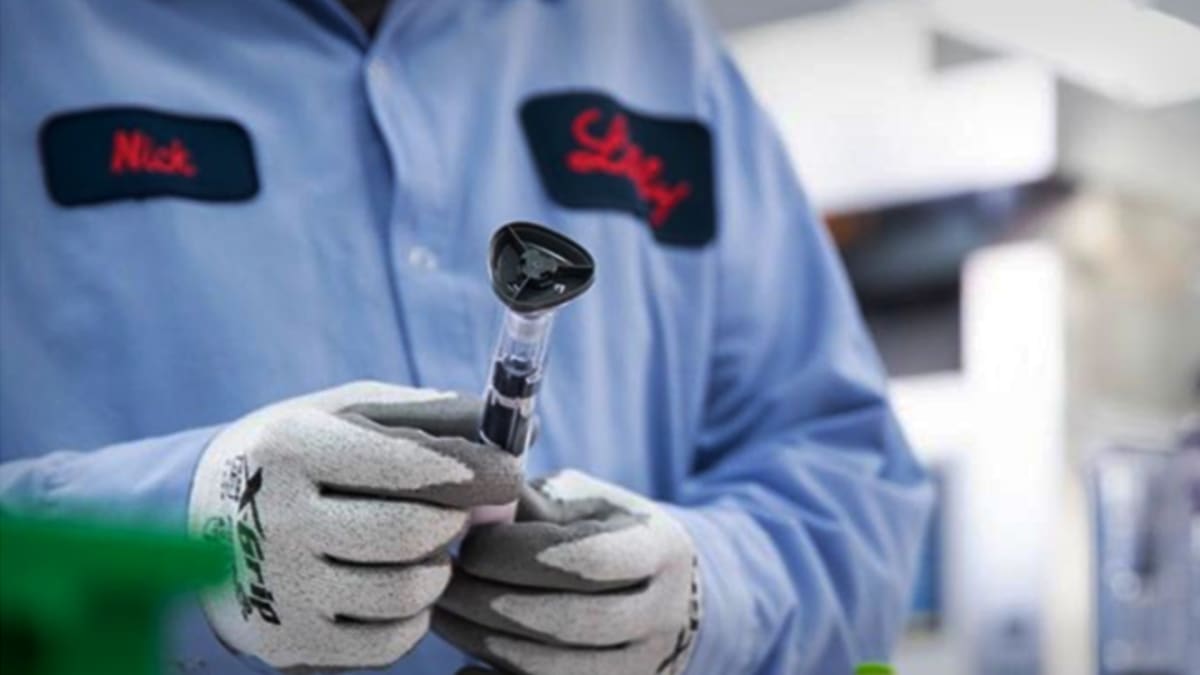
Eli Lilly (LLY) shares moved firmly higher Wednesday after the drugmaker posted promising data from a late-stage trial of its developing Alzheimer's treatment.
Eli Lilly said the treatment, known as donanemab, slowed the progression of Alzheimer's in Phase 3 trial patients by 35%, when compared to placebo, with a 40% decline on the "ability to perform activities of daily living."
The results improve on Lilly's Phase 2 trial, which was published in late January, and suggest donanemab -- which targets amyloid plaque -- proteins found in spaces between nerve cells that can disrupt communication to the brain -- could find favor with the U.S. Food & Drug Administration.
The FDA rejected Eli Lilly's request for an accelerated review of donanemab earlier this year, citing "the limited number of patients with at least 12 months of drug exposure data provided in the submission." Eli Lilly said the speed at which donanemab reduced amyloid plaque meant that some patients left the Phase 2 study, known as Trailblazer, after six months, reducing its overall same size.
Alzheimer's disease is a progressive brain disorder that affects more than 50 million people around the world. To date, no drug has been found to address the disease, which can accelerate into dementia and other more serious cognitive conditions.
"Over the last 20 years, Lilly scientists have blazed new trails in the fight against Alzheimer's disease by elucidating basic mechanisms of AD pathology and discovering imaging and blood biomarker tools to track the pathology," said Daniel Skovronsky Lilly's chief scientific and medical officer.
"We are extremely pleased that donanemab yielded positive clinical results with compelling statistical significance for people with Alzheimer's disease in this trial," he added. "This is the first Phase 3 trial of any investigational medicine for Alzheimer's disease to deliver 35% slowing of clinical and functional decline."
Eli Lilly shares were marked 3.7% higher in early Wednesday trading immediately following news of the trial data to change hands at $419.08 each.
Late last year, European drugmaker Roche AG said that trials of its gantenerumab, a drug used to treat patients with early-stage Alzheimer's, failed to reach the primary endpoint of preserving cognitive functions affected by the disease.
The results leave Biogen (BIIB), which unveiled better-than-expected results from a late-stage study of its Alzheimer's treatment developed with Japan-based partner Eisai Co Ltd., as well as Eli Lilly, as potential market leaders in the multi-billion market.
Treatment pricing, however, has been a controversial issue and the U.S. Centers of Medicare and Medicaid Services noted in September that its decision to only cover treatment with Aduhelm -- Biogen's FDA-approved Alzheimer's drug -- if patients are enrolled in a clinical trial as a major factor in lowering overall premiums for Medicare Part B.
Biogen was forced to slash the price of Aduhelm by around 50%, to $28,200 per year, in order to help expand its potential reach following the CMS decision late last year.
Aduhelm, Biogen noted in earlier studies, has been show to erode amyloid beta, a plaque which builds up around the brain and can lead to neuron damage.
The FDA approved Aduhelm for the treatment of Alzheimer’s through its accelerated approval pathway, which can be used for a drug for a serious or life-threatening illness that provides a meaningful therapeutic advantage over existing treatments, last year.







